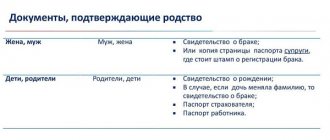Self-defense, weapons and citizen consciousness
Without a legal education, and often even a minimum of knowledge in this area, people categorically assert that in Russia it is impossible to defend themselves, since the law equates this almost to a crime.
Where do these stereotypes come from? Firstly, media publications influence. Since any publication tries to attract as many readers as possible, the sensationalism of the materials presented forms an appropriate view on the topic of self-defense. But the reason for our citizens’ fear of protecting themselves and their loved ones is not only formed by the media. In many ways, this is a habitual desire to relieve oneself of responsibility. It’s easier to say that the law, the state system, or other people are to blame than to defend your rights.
In this article we will try to dispel the main myths about self-defense and responsibility for it before the law.
Myth 1. The law prohibits defending yourself until real damage has been caused.
Article 37 of the Criminal Code of the Russian Federation states that the use or threat of violence by the attacker is sufficient for the victim to have the right to self-defense. Regarding the threat or use of violence, the law says that the violence must be dangerous to the life of the defender.
The concept of “immediate threat” is clarified in Resolution of the Plenum of the Armed Forces of the Russian Federation No. 19 of 2012. This document provides characteristic signs of a threat to the life of the defender. These include:
Causing harm that endangers life (injuries to internal organs) and the use of weapons, as well as strangulation or arson of the victim.
But even without the use of weapons, self-defense under the Criminal Code of the Russian Federation is permissible if the attacker displays a weapon or threatens to kill. If in the circumstances of what was happening there were grounds to fear that the threat would become a reality, then the victim has the right to the necessary self-defense.
Thus, even killing an attacker, provided that he had a weapon in his hands and shouted out promises to kill, will not be an excess of self-defense under Article 37 of the Criminal Code of the Russian Federation.
Necessary defense
According to Part 1 of Art. 37 of the Criminal Code of the Russian Federation, if a person protects his personal rights, the rights of those defending or other persons, the interests of society or the state protected by law from a socially dangerous attack that puts the life of the defender or another person at risk, if the situation has a threat of violence associated with such a risk, then harm to the person from whom the threat comes is not a crime.
In order to assess whether a particular action constitutes a necessary defense, it is necessary to determine whether certain circumstances existed. Circumstances can be combined into two groups: circumstances that relate to the attack, and circumstances that relate to the defense.
Circumstances relating to the attack
The encroachment must necessarily take place in real conditions, and must also be socially dangerous. For example, someone wants to take your money and threatens you with a knife. The beginning of the state of necessary defense is the moment of the beginning of the encroachment, the end of the state of necessary defense is the moment of the end of the encroachment. To put it simply, the state of necessary defense ends when the enemy clearly abandoned his intentions, fled, found himself disarmed, ceased to carry out criminal intentions, etc.
It is also important that the law allows for the fact that a state of necessary defense may arise even before the start of an encroachment. However, the threat of this encroachment must be real and immediate. For example, a person threatens you with physical harm (says that he will kill, maim, etc.) and, at the same time, reaches out to an object that can be used as a weapon (hammer, tire iron, axe, knife, etc.). d.).
Speaking about the moment when the state of necessary defense ends, it must be said that under a number of circumstances it can continue even after the encroachment has actually ended. But here it must be established that, for example, the defender, guided by the situation, was unable to determine that the attack was over. Installing this can be very difficult.
Based on this, it is necessary to understand that actions can be interpreted as necessary defense if they were committed during the period from the beginning to the end of the attack.
It is worth noting here that a state of necessary defense can also arise when the person defending himself had the opportunity to avoid the attack, for example, contact the police or third parties, run away, etc. This is stated in Part 3 of Art. 37 of the Criminal Code of the Russian Federation.
In addition to this, the state of necessary defense also arises when a person protects not himself, but someone else, i.e. when the attack is directed at a third party. For example, you saw that a group of drunk guys is pestering a girl and threatening her with physical harm, and you stand up for her - this is a state of necessary defense.
Circumstances relevant to the defense
The actions of the defending person should be directed only at the one or those who are attacking. Also, these actions, to a certain extent, must be proportionate to the actions of the offender. The issue of proportionality is extremely important, and here two nuances need to be taken into account.
Firstly, if an attack threatens the life or health of the defender or a third party, and also if there is a real threat of such an attack, then the use of any violence in response may be lawful. If the encroachment threatens other values (for example, property), then actions that clearly do not correspond to the nature of the encroachment cannot be performed. For example, you cannot stab a thief who got into your pocket with a knife, or kill with a gun a person who got into your garden to steal tomatoes.
Note that necessary defense allows for the possibility that the attacker may suffer greater harm than he can inflict on the defender. But the main thing here is that the harm caused in response is not clearly disproportionate in relation to the attack.
Of course, situations in life can be very different. It happens that the attack occurs so quickly and unexpectedly that the victim is not able to adequately assess the degree of danger of the attack. In this case, the actions of the defender can also be regarded as necessary defense.
If we talk about exceeding the limits of necessary defense, then actions that go beyond the above limits are exceeding it. Liability for excess is established in accordance with individual articles, for example, Art. 108 and 114 of the Criminal Code of the Russian Federation. Let us note that only intentional actions that go beyond the limits of necessary defense are criminally punishable. In other words, if the person defending himself acted knowingly and admitted that he was causing harm that was clearly disproportionate to the threat, and wanted the harm to occur. If the defender wanted to deal with the attacker, his actions are subject to criminal punishment.
Myth 3. You can only defend yourself with what you attack with. Attacked with a knife - you can't shoot
There are no such restrictions either in Article 37 of the Criminal Code of the Russian Federation or in Resolution of the Plenum of the Supreme Court No. 19. Article 37 states that in the absence of a threat of violence from the attacker, the actions of the defender must correspond to the actions of the attacker and must not exceed the limits of permissible self-defense.
That is:
- If the actions of the attacker pose a real threat to health and life, then you can defend yourself in any way without causing harm to third parties.
- If there is no threat to life, you need to act commensurate with the actions of the attacker. If the victim was punched by a miniature girl, then, of course, there is no reason to use a weapon for defense. But when attacked by a group of strong men, even if they are unarmed, there is a risk that the attackers will beat the victim to death with their fists. In this case, protective measures may be applied.
In specific situations, it can be difficult to assess all the risks and correctly apply existing defenses.
Important self-defense law and myths
“Self-defense in Russia is shrouded in many myths - just like the accompanying topic of civilian weapons. We “know” for sure that our self-defense legislation is terrible, that it is impossible to defend ourselves in Russia, and in general everything needs to be changed.
Our “knowledge” is based largely on articles and interviews in the media - which, generally speaking, do not aim to inform citizens, but to attract their attention through the maximum sensationalism of the materials they post.
Today I will try to dispel some of these myths, and will limit myself only to self-defense legislation. I leave no less pressing issues of law enforcement practice for the future.
I also want to make a warning. I in no way want to say that your knowledge of the law (especially that gained as a result of reading this article) is sufficient for independent (without an experienced and motivated lawyer) legal defense in the event that you yourself, God forbid, are forced to answer for the consequences of their self-defense actions. But I hope that this knowledge will at least save you and your lawyer from tearing out hair on all parts of your body in despair over what you unknowingly did or told the investigator before your lawyer comes to your aid.
1. The law prohibits defending yourself until real damage has been caused.
Article 37 of the Criminal Code of the Russian Federation states: “1. It is not a crime to cause harm to an attacker in a state of necessary defense, that is, when protecting the personality and rights of the defender or other persons, the legally protected interests of society or the state from a socially dangerous attack, if this attack was associated with violence dangerous to the life of the defender or another person , or with an immediate threat of such violence.”
Simply put, there only needs to be an imminent threat of life-threatening violence for your actions to be legal.
What is considered an “imminent threat”? Resolution of the Plenum of the Supreme Council No. 19 dated September 27, 2012 says this: “2. In Part 1 of Article 37 of the Criminal Code of the Russian Federation, a socially dangerous attack involving violence dangerous to the life of the defender or another person is an act that, at the time of its commission, created a real danger to the life of the defender or another person. The presence of such an encroachment may be evidenced, in particular, by:
- causing harm to health that creates a real threat to the life of the defender or another person (for example, injury to vital organs);
- use of a method of assault that creates a real threat to the life of the defender or another person (use of weapons or objects used as weapons, strangulation, arson, etc.).
An immediate threat of violence that is dangerous to the life of the defender or another person can be expressed, in particular, in statements about the intention to immediately cause death or harm to health to the defender or another person, dangerous to life, demonstrations to the attacker of weapons or objects used as weapons, explosive devices if, taking into account the specific situation, there were grounds to fear that this threat would be carried out.
[Courts are obliged to be guided by the decisions of the Plenum of the Armed Forces of the Russian Federation in their work - so you can safely refer to it before the investigator and the judge.]
In accordance with the letter of the law, you have every right to kill on the spot a person who is coming at you with reinforcement in his hand and shouting “I’ll kill you, bitch!” - unless, of course, you are sure that this is a joke.
2. You can only defend yourself. You cannot stand up for others.
If you noticed, in the documents cited above it says everywhere: “the defender or another person.” The law under no circumstances requires you to stand silently and watch as a person you don’t know is killed.
3. You can only defend yourself with what you attack with. They attacked with a knife - you can’t shoot.
Neither Article 37 of the Criminal Code of the Russian Federation, nor the above-mentioned resolution contains ANY word about such restrictions.
Article 37 of the Criminal Code of the Russian Federation says the following:
"2. Protection from an attack that is not associated with violence dangerous to the life of the defender or another person, or with an immediate threat of such violence, is lawful if it does not exceed the limits of necessary defense, that is, deliberate actions that are clearly inconsistent with the nature and danger encroachments."
Summing up with the first part of the article above, we get the following:
-if there is a threat to life, you can defend yourself in any way and with anything. The main thing is not to cause damage to third parties.
-if there is no threat to life, it is necessary to balance the method of defense with the danger of attack. There is no reason to grab a gun if a girl in stiletto heels weighing fifty kilograms is throwing herself at you with her fists. But a group of athletic-looking young men may well simply beat you to death with just their hands and feet - therefore, the use of weapons here cannot be considered unreasonable.
4. If only one of the attackers has a knife, you can only defend against him with a knife.
From Resolution of the Plenum of the Armed Forces of the Russian Federation No. 19:
"12. If there is an encroachment by several persons, the defending person has the right to apply to any of the encroachers such measures of protection as are determined by the nature and danger of the actions of the entire group.”
5. As soon as the attacker stopped (the knife was taken away from him), self-defense ceases.
Stopping an attacker should not be confused with stopping an attack. The attacker could stop only to catch his breath or lull your vigilance with a short period of inaction - and then suddenly rush at you. The Resolution of the Plenum of the Supreme Council No. 19 states:
"8. Explain to the courts that the state of necessary defense may also occur in cases where:
the defense followed directly after the act of assault, although it was completed, but based on the circumstances, the moment of its end was not clear to the defending person and the person mistakenly believed that the assault was continuing;
the socially dangerous encroachment did not stop, but, obviously for the person defending himself, was only suspended by the encroaching person in order to create the most favorable environment for the continuation of the encroachment or for other reasons.
The transfer of weapons or other objects used as weapons during an attack from the attacker to the person defending cannot in itself indicate the end of the attack if, taking into account the intensity of the attack, the number of attackers, their age, gender, physical development and other circumstances, the there is a real threat of continuation of such encroachment.”
6. You cannot be allowed to carry weapons. This way, anyone can provoke an attack, kill the attacker, and then claim self-defense.
From Resolution of the Plenum of the Armed Forces of the Russian Federation No. 19:
"9. A person who provoked an attack in order to use it as a pretext for committing illegal actions (causing harm to health, hooliganism, concealing another crime, etc.) is not recognized as being in a state of necessary defense. What was done in these cases is qualified on a general basis.”
7. You can defend yourself, but you cannot detain a criminal.
It's difficult, but it's possible. From the Criminal Code of the Russian Federation:
“Article 39. Extreme necessity
1. It is not a crime to cause harm to interests protected by criminal law in a state of extreme necessity, that is, to eliminate a danger that directly threatens the personality and rights of a given person or other persons, the legally protected interests of society or the state, if this danger could not be eliminated by other means and at the same time, the limits of extreme necessity were not exceeded.
2. Exceeding the limits of extreme necessity is considered to be the infliction of harm that is clearly inconsistent with the nature and degree of the threatened danger and the circumstances under which the danger was eliminated, when harm was caused to the specified interests equal to or more significant than that prevented. Such an excess entails criminal liability only in cases of intentional harm.”
The main problem is not to buy a shaker in Moscow, and not to intentionally cause harm to the criminal that is disproportionate to the danger of the crime (see below).
8. Currently there is no article on exceeding the limits of necessary defense.
There is no article with this title. But there are others in the Criminal Code:
Article 108. Murder committed when exceeding the limits of necessary defense or when exceeding the measures necessary to apprehend the person who committed the crime.
…
Article 114. Causing grievous or moderate harm to health by exceeding the limits of necessary defense or by exceeding the measures necessary to detain a person who has committed a crime
9. If the criminal later says that he only wanted to scare him, the self-defender will be imprisoned
Article 37 of the Criminal Code of the Russian Federation says directly:
"2.1. The actions of the defending person do not exceed the limits of necessary defense if this person, due to the surprise of the attack, could not objectively assess the degree and nature of the danger of the attack.”
Moreover, the Resolution of the Plenum of the RF Armed Forces No. 19 states the following:
"16. Courts need to distinguish between the state of necessary defense and the state of imaginary defense, when there is no real socially dangerous attack and the person mistakenly assumes its presence.
In cases where the situation gave reason to believe that a real socially dangerous attack was being committed, and the person who applied protective measures did not and could not realize the absence of such an attack, his actions should be considered as committed in a state of necessary defense. In this case, a person who has exceeded the limits of protection permissible in the conditions of a corresponding real attack that is not associated with violence dangerous to the life of the defender or another person, or with an immediate threat of the use of such violence, is subject to liability for exceeding the limits of necessary defense.”
10. You cannot defend yourself with a weapon if you do not have the right to store (carry) it.
There is no legal prohibition on this. Article 37 of the Criminal Code of the Russian Federation states:
"3. The provisions of this article apply equally to all persons, regardless of their professional or other special training and official position, as well as regardless of the ability to avoid a socially dangerous attack or seek help from other persons or authorities.”
Myth 4. If only one of the attackers has a knife, you can only defend against him with a knife
The Resolution of the Plenum of the RF Armed Forces clearly states that even if one of the group of attackers is armed, the defender has the right to apply protective measures to all members of the group that correspond to the danger of their common actions.
Based on this, the law does not provide for any restrictions on the use of means of self-defense in relation to unarmed members of a group in which there are armed participants.
Have a question for a lawyer? Ask now, call and get a free consultation from leading lawyers in your city. We will answer your questions quickly and try to help with your specific case.
Telephone in Moscow and the Moscow region: +7
Phone in St. Petersburg and Leningrad region: +7
Free hotline throughout Russia: 8 (800) 301-39-20
Myth 5. As soon as the attacker stops or the knife is taken away from him, self-defense stops
Stopping and stopping an attack are not the same thing. The criminal can stop only to deceive the defender. Therefore, in the same 19th Resolution of the Plenum of the Supreme Court, an explanation was given to the courts that the victim has the right to defend himself even after the cessation of the act of attack, if the fact of cessation was not obvious and the victim assumed that the attack was continuing.
The same applies to situations where the attack was only suspended, and the victim understood that it would soon continue.
Even after taking away weapons or other items that were used in the attack, the defender has the right to act according to the situation. Assessing the situation involves determining the real threat of continuing the attack, based on the number of attackers, their age, gender, and physical fitness.
Myth 7. You can defend yourself, but you can’t detain a criminal
In connection with this issue, it is worth taking into account the requirements of Article 39 of the Criminal Code of the Russian Federation. According to this rule of law, if the degree of self-defense was not exceeded, and harm to legally protected interests was caused in a situation of extreme necessity (to eliminate a threat to the individual), then such an excess is not considered a crime.
If the harm caused did not correspond to the danger posed by the attacker, or the harm was equal to or greater than that prevented, then the defender will be held criminally liable. But here there is an important caveat - provided that he caused the harm intentionally.
Urgent necessity
Article 39 of the Criminal Code of the Russian Federation establishes that it is not a crime to cause harm to interests protected by criminal law if it was committed in a state of extreme necessity. Those. Actions to eliminate a danger that clearly threatens the personality and rights of a specific person or third parties, the interests of society or the state, protected by law, are not punished criminally, if it was impossible to eliminate the danger in any other way than to cause harm, but the limits of extreme necessity were not exceeded.
The limits of extreme necessity are exceeded when harm is caused that is clearly inconsistent with the nature and extent of the threat and the circumstances in which the danger was eliminated, when harm was caused to the specified interests equal to and more serious than that prevented. Criminal liability occurs only in cases where the harm was caused intentionally.
In contrast to necessary defense, where one person attacks another, in case of extreme necessity, danger to a person, his rights and the protected interests of society or the state arises, for example, in the event of exposure to natural disasters, as a result of road accidents, accidents, animal attacks, accidents and etc. Sometimes danger arises due to illegal actions of third parties. For example, in order to prevent a fire, someone breaks into someone else’s apartment and damages property, or takes someone else’s car without the owner’s consent to take his pregnant wife to the maternity hospital, etc.
Actions are regarded as absolutely necessary only when a danger threatening a person and his rights actually occurs. If harm is caused to prevent a purely hypothetical danger, action is not strictly necessary. In addition, the danger must really threaten the person and his rights, and not be apparent.
In order for causing harm in a state of extreme necessity to be recognized as legitimate, it is necessary that the means of eliminating the danger be the only possible ones to resolve the situation. For example, it would not be absolutely necessary to seize someone else’s car to transport a patient if there was a real opportunity to call an ambulance. But if a patient urgently needs to be transported from somewhere outside the city, seizing someone else’s car may be regarded as an emergency.
For actions to qualify as extreme necessity, they must be performed specifically at the moment when the danger occurred, i.e. not earlier and not later. An equally important nuance for such qualification is the correspondence of the harm caused to the nature of the threat - under no circumstances can it be equal to or exceed the harm prevented (with necessary defense, this is allowed). For example, it is not allowed to prevent a danger to one’s life at the expense of the life of a third party or to damage property of a value and value greater than that which is being saved. If the actions exceed the limits of extreme necessity and were committed intentionally, they will be criminally punishable.
The Criminal Code of the Russian Federation does not have special articles on the topic of liability for actions that exceed the limits of extreme necessity. Punishment is established by articles of the Criminal Code of the Russian Federation, which provide for liability for relevant acts. But exceeding the limits of extreme necessity implies mitigation of liability. If the harm is recognized by the court as an emergency and does not entail criminal liability, compensation may be recovered from the person who caused the harm through civil proceedings. Art. speaks about this. 1067 Civil Code of the Russian Federation.
But let's talk a little more about the legal aspect of self-defense and understanding the consequences, because... This question is of the greatest interest from the perspective of our course.
Myth 9. If the criminal later says that he only wanted to scare him, the defender will be imprisoned
Article 37 of the Criminal Code of the Russian Federation on necessary defense states that if it is impossible to assess the reality of the threat (due to the surprise of the attacker’s actions and for other reasons), the defender has the right to defend himself.
The Supreme Court also pointed out to lower courts the need to distinguish between imaginary and real self-defense. In a situation where the defender really believed that the attacker’s actions threatened his health, self-defense actions should be qualified as legal.
Myth 10. You cannot defend yourself with a weapon if you do not have the right to keep and carry it.
Article 37 of the Criminal Code of the Russian Federation contains no such restrictions. The text of this article states that its provisions apply to all persons, regardless of their professional training and official position. They also do not depend on the ability to seek help from others.
Thus, the victim has the right to defend himself by any means commensurate with the danger posed by the attacker.
What if a person could run away or avoid violence?
Legally, it does not matter whether the victim could have run away, say, to neighbors; in practice, it is otherwise.
According to the law, the provisions on necessary defense apply regardless of whether a person could avoid a dangerous attack or seek help from neighbors or authorities (Part 3 of Article 37 of the Criminal Code of the Russian Federation). “But in practice, when sentencing, courts may take into account various circumstances, including whether the victim could have left the apartment. It is impossible to predict how a case will be handled. Therefore, defense should be considered as the most extreme option: it is better to always try to avoid conflict and solve the problem in another way. The most important thing is not to remain silent if violence occurs in your family. Report this to the police, your teachers or relatives, ask for help in time,” says lawyer Valentina Frolova.
Exceeding the limits of necessary defense
If there is a real threat to the health or life of the victim, or if the victim perceived the attacker’s actions as a threat, he has the right to defend himself and self-defense is not exceeded in this case.
If there is no threat to life and health from the attacker, then the actions of the defender may be recognized as exceeding the limits of necessary self-defense. Article 37 of the Criminal Code of the Russian Federation requires not to take actions in such a situation that are clearly inconsistent with the danger and nature of the attack.
Exceeding necessary self-defense
What is exceeding the limits of necessary defense?
Situations in which the attacker was killed or his health was seriously harmed, but there was no threat to the life of the defender, are classified as exceeding the necessary self-defense. A person is found guilty only if it is proven that he knowingly caused harm that was not commensurate with the level of danger.
What is not considered a dangerous assault?
Dangerous assault does not include actions that do not pose a threat to life, for example, beatings, causing minor or moderate injuries, robbery using violence that does not threaten human life, as well as damage to someone else’s property (intentional or negligent), vandalism, damage to objects infrastructure or transport.









